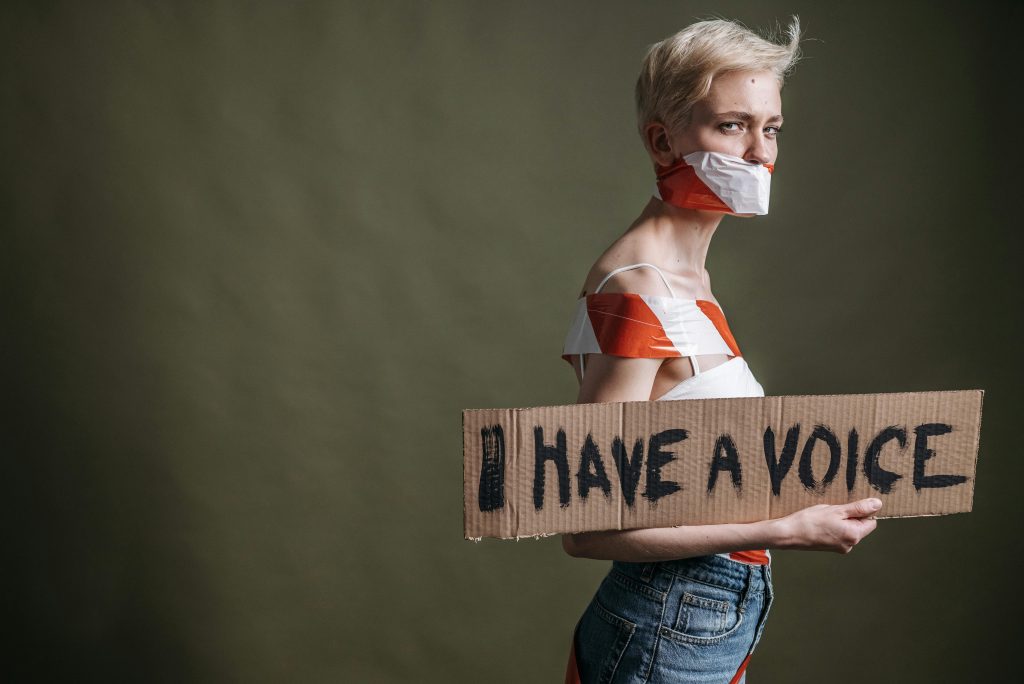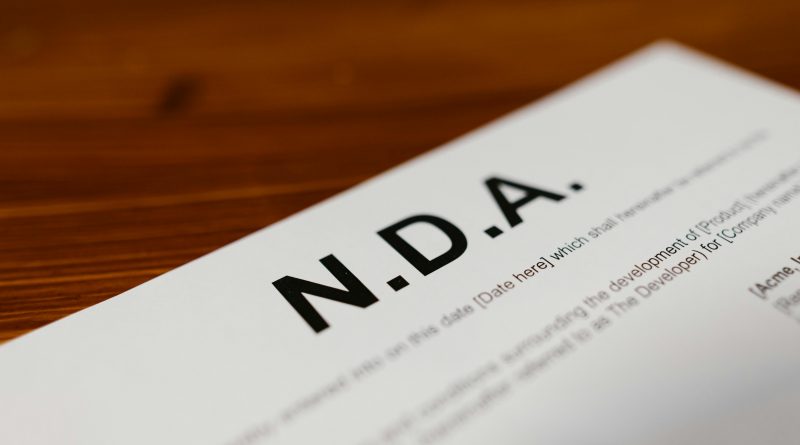Understanding NDAs: What Voice Actors Need to Know About Confidentiality Agreements
If you’re new to voice acting and work in general, you may have been told to sign an NDA (non-disclosure agreement) by a client. What is it? Should you sign it? Will all clients give you one? This post will tell you all there is to know.
So, What is an NDA?
There’s nothing complex about knowing what an NDA is. It’s simply a binding agreement that you sign that says that you will not share anything covered in the NDA with anyone not involved in the project you’re voicing until the NDA expires.
Let’s say you’re voicing a character in a video game that hasn’t been revealed yet. The NDA will likely mean that you will keep your involvement with this game a secret until the game is announced or until the character you’re voicing is revealed. This may also mean that you shouldn’t discuss plot lines, other actors in your project, or anything that can spoil the surprise.
NDAs are used for several reasons. First, they prevent companies from revealing information that their competitors can use. For example, if Disney is working on a movie, it may not want to reveal its premise, so another company, like DreamWorks, does it first. Second, it just ruins the surprise.
For example, let’s look at the Nintendo Switch 2. Leakers revealed what the console looked like months before Nintendo planned on unveiling it. Once Nintendo made a teaser trailer, it wasn’t much of a surprise to anyone active on the video game side of social media. Of course, an NDA didn’t prevent this, but think about all of the upcoming media that could easily be spoiled if NDAs didn’t exist. NDAs help to reduce a surprise from being spoiled through legal consequences.
Signing Them
When you are given an NDA, always read it over carefully to ensure that it’s reasonable and easy to understand. Some clients may give you vague NDAs, so it’s important to ask questions before you sign them. In some cases, a client may create a clearer NDA.

Also, be sure to keep a separate computer folder or filing cabinet if all your NDAs are signed physically. This is important not only for record-keeping but also when you want to refresh yourself on what you can or cannot talk about with the project or when you’re wondering when the NDA expires.
What if you lose the NDA? Don’t be afraid to ask your client for another copy for your records. To avoid any embarrassment, I usually tell them that my hard drive got wiped. You may also find the NDA in your email or message archives, and you can simply re-download it.
Breaking NDAs
An NDA comes with potential consequences if one breaks it. A company may sue the voice actor if they break NDA, leading to the actor possibly having to pay a hefty fine. In some cases, breaking the NDA may be more trouble than it’s worth for a company to go after you. However, you still may be blacklisted from most companies. If you broke NDA once, who’s to say you won’t do it again?
We should mention that there are some cases where breaking NDA is legally and morally okay, and it has to do with harassment. If you’re being harassed as an NDA, then the NDA cannot prevent you from speaking out against it. This is thanks to the Speak Out Act, which was signed into law in 2022. This law came out of the #MeToo movement, where many companies tried to use NDAs as a reason why actors couldn’t speak out against harassment.

That said, the NDA you sign should not be vague and should tell you what you can and cannot speak about regarding the project and when the NDA expires. However, it’s still worth it to speak to a client to double-check to see if what you want to say is or isn’t allowed.
What if the Client Didn’t Give Me an NDA to Sign?
Some clients, especially if they’re smaller, may not have given you an NDA. For example, the sole maker of an indie game may not know much about the legal world, or they may not care.
This does mean that you can speak out about it, but should you? Again, ask the client if you’re unsure. Smaller clients may love that you’re getting the word out about your project. Others may have overlooked the NDA and be upset. And while they probably cannot go after you legally, they can blacklist you from further projects.
But I Really Want to Talk About It!
I get it. You finished a performance you’re really proud of, and you want to tell the world. Surely, your best friend or partner won’t spill the beans, right? Look, I don’t care how much you trust them. It just takes one drink too many for them to reveal something they shouldn’t, then the person they spilled it to will tell their friends, and when does it end?
If you do have to talk about it, vagueness is key. Did you get a part in the latest Final Fantasy game? Say you got a job for an RPG that people will be excited about. If people ask, tell them to wait and see. Even then, I’m worried. People on the Internet are sleuths and can use the vague hints you’ve given them to unravel the work you’ve voiced.
Personally, the only person I spill the beans to is my cat. And even then, I don’t trust her.
Final Thoughts
The NDA is designed so that you don’t spoil the big reveal. However, you should always read it carefully to understand what you can talk about when it expires, so you can ask your client further questions. If you didn’t receive one, still ask your client before speaking about the project. Also, as a reminder, harassment isn’t covered under an NDA. Don’t be afraid to speak out against inappropriate client behavior. Good luck!

